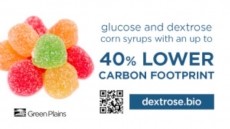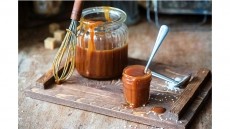EFSA sets new intake level for aluminium in food
Aluminium is present in a range of everyday foods which play an important role in a healthy diet such as cereals and vegetables. The EFSA opinion was requested by the European Commission in light of a similar evaluation by the Joint FAO/WHO Expert Committee on Food Additives (JECFA) in June 2006 which re-evaluated the health effects from aluminium via dietary intake and subsequently lowered the tolerable weekly intake from seven mg/kg body weight to one mg/kg bodyweight. EFSA's panel on additives, flavourings, processing aids and materials in contact with food (AFC) has reached a similar conclusion to JECFA on the TWI intake but found that large individual variations in dietary intake can occur and some highly exposed consumers may exceed the TWI by up to two times. "It would be undesirable for an individual to regularly exceed the TWI; however, the margin of safety included in the guideline of one mg/kg bodyweight per week is high enough to ensure that occasional exceedance of it does not present an immediate risk to health," said an EFSA spokesperson.Sources The AFC said that it evaluated all available studies on the total dietary exposure to aluminium, including some showing adverse effects of aluminium on the nervous and reproductive system in animals. However, the food safety watchdog's panel said that due to the design of the studies and the analytical methods used, it has been unable to conclude on the specific sources contributing to the aluminium content of particular foods. The AFC also noted in its report that there have been few specific studies on individual food additives containing aluminium. Commission response A spokesperson for the DG SANCO (Directorate General for Health and Consumer Affairs) told FoodProductionDaily.com that, in response, it will be undertaking a review of aluminium containing additives with member states, experts and industry to determine which, if any of these, are the main contributors to dietary intake of the metal. "Should the use of aluminium containing additives be identified as leading to the exceedance of the TWI, the Commission will amend the authorisations by comitology," she added. Infant milk formula study The AFC opinion highlighted some brands of infant formula may give infants an aluminium intake higher than the safety guideline of one mg/kg bodyweight. Potential exposure to aluminium in 3-month infants from a variety of infant formulae was estimated by the AFC panel. It said that high exposure averages were up to 0.9 mg/kg bw per week for milk-based formulae and 1.1 mg/kg bw per week for soya-based formulae. The panel noted that in some individual brands of formulae (both milk-based and soya-based) the aluminium concentrations were four times higher than the average concentrations, leading to a four times higher potential exposure in brand-loyal infants. "This review is timely because it has highlighted the need for better data on the sources and extent of use of aluminium in food, so that exposure can be reduced for those who may be exceeding the TWI," said Dr Sue Barlow, chair of the AFC Panel. The Food Standards Agency in the UK noted the EFSA opinion and stated that its recent surveys do not raise concerns about aluminium intake for infants in the UK fed on cows' milk-based formula. However, the FSA claims there are possible concerns about the aluminium levels in soya-based formula and said that it will be seeking further information in relation to this area. Alzheimer's disease risk The Panel said that, based on the available scientific data, it did not consider exposure to aluminium through food to present a risk for developing Alzheimer's disease. In November 2007, the Federal Institute for Risk Assessment (BfR) issued an updated opinion on the risk of Alzheimer's disease from aluminium packaging. It maintained that there is no scientific proof of a risk of Alzheimer's from use of aluminium in consumer products.










